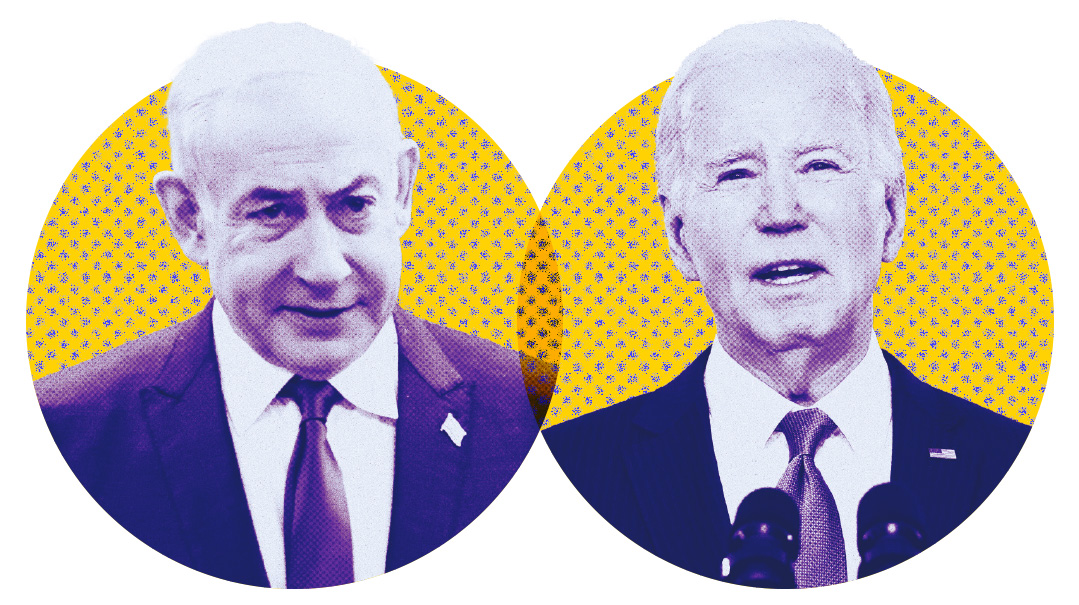Israel vs. Gaza: 6 Overdue Paradigm Shifts

If the Israeli government’s stated goal was to “change the paradigm” that governs its management of such conflicts, then much of the business was left unfinished

The Israeli people, their government, and the IDF displayed fortitude, cohesion, and military might from start to finish during Operation Guardian of the Walls in Gaza. The postmortem over the military operation is still underway, but the consensus is that the IDF seriously ravaged Hamas’s terrorist infrastructure and sent a strong message to Hezbollah and Iran that the same fate awaits them if they start up with Israel.
However, if the Israeli government’s stated goal was to “change the paradigm” that governs its management of such conflicts, strategically, politically, and militarily, then much of the business was left unfinished. What follows is a short list of paradigms that are long overdue for change.
1 Pleading for the Right to Self-Defense
The right of a nation to defend itself against armed aggression is codified in Article 51 of the UN Charter. Yet every time Israel is attacked by Hamas or Hezbollah, it feels it has to go the extra mile, groveling for international approval, and then profusely thanking the president of the United States for supporting a right that any nation has under international law. Some 45 other armed conflicts are raging in the world, with casualty figures higher than or equal to what we just experienced in Israel and Gaza. How many of those nations do you hear appealing for the right to defend themselves? Israel needs to invoke its rights and cease pleading for support.
2 Beating Ourselves Up over PR
The mantra that Israel does a lousy job of “hasbarah,” or public relations, is a line I’ve been hearing decades before my beard began to sport gray hairs. Most every country — and corporation, for that matter — could improve its PR, but Israel has a long list of eloquent and forceful voices who speak unaccented English, whether it be Binyamin Netanyahu tussling on Face the Nation or Naftali Bennett brawling on the BBC. We shoot ourselves in the feet harboring unrealistic expectations that the right combination of slick statements and timely tweets will convince our detractors and enemies. Whom do we hope to convince? AOC? Louis Farrakhan? Concerted efforts should be made to close ranks among as many of our fellow Jews as possible who still have open minds.
3 Sitting Back Like Sitting Ducks
There is no doubt that the Iron Dome is an impressive piece of technology. It shot down some 80% of the Hamas missiles that reached Israeli territory, by some estimates. President Reagan was one of the first world leaders to understand the importance of anti-missile defense when he proposed his “Star Wars” program. President Biden has promised to replace the Iron Dome batteries we lost, and for that, he deserves thanks. However, over-reliance on the Iron Dome lulls us into complacency. It means Israel sits back passively and absorbs a certain “acceptable” number of rocket attacks, instead of taking the battle to the enemy. Here, Prime Minister Netanyahu also declared clearly that particular paradigm will change in favor of a zero-tolerance policy. Time will tell if his deeds match his words.
4 Pining for the Days of Bipartisan Support
Bipartisanship in the US has long since become a casualty of polarization, and for Israel, the handwriting has been on the wall for some time. An Economist/YouGov poll released last week confirmed it. When asked how important it should be for the US to protect Israel, only 22% of Democrats said it was “very important,” compared to 61% of Republicans who said it was. President Biden, like all old-line mainstream Democrats, is now captive to the party’s brazen progressive wing. Without their votes and support, his domestic package for rebuilding the American economy is dead on arrival. Maybe this is a passing phase; perhaps Donald Trump, or someone built in his image, makes a comeback in 2024, but with measures being introduced in Congress to curtail US military aid, Israel needs to take a more proactive approach.
5 Weaning Itself from US Military Aid
The time has come to phase out US military assistance to Israel, just as US economic aid to Israel was phased out from 1997 to 2007. Israel can afford to pay its own way. The $3.8 billion in annual US military aid to Israel amounts to NIS 12 billion, which is 2.8% of Israel’s total budget of NIS 433 billion. Israel dug up similar amounts for coronavirus stimulus payments, not to mention special grants to keep the Arab sector happy (and we saw where that got us).
The US military aid is basically a subsidy for US defense manufacturers, stifling the growth and export opportunities of Israel’s own domestic defense industries. Israel’s military dependence on the US is one irritant that fuels anti-Semitism, and it also ties Israel’s hands in battle. The US and Israel should replace the aid with joint research and development ventures that will benefit both countries.
6 Fooling Ourselves with Our Neighbors
The Abraham Accords may have lulled many of us into thinking that the Palestinian problem had disappeared. It hasn’t. Efraim Karsh, director of the Begin-Sadat Center for Strategic Studies, contends that “the ongoing explosion of violence by Israel’s Arabs against their Jewish compatriots is not an act of social protest, as is wrongly claimed by many commentators, but an internal uprising in support of an external enemy — a corollary of decades of steady nationalist and religious radicalization.”
It’s not a cheery observation, and in his report, Professor Karsh detailed how this head-on collision has been 70 years in the making. On all fronts, Israel will have to rethink the paradigms that have governed its relations with the Arabs. Will Israel continue to allow inflows of cash from Qatar to keep Hamas afloat? Will the next Israeli government, whenever it’s formed, stand firm against international pressure for territorial concessions leading to a two-state solution? Is a divided Israeli electorate doomed to relying on Arab support to make a stable coalition?
These are tough questions that have no easy answers.
(Originally featured in Mishpacha, Issue 862)
Oops! We could not locate your form.













